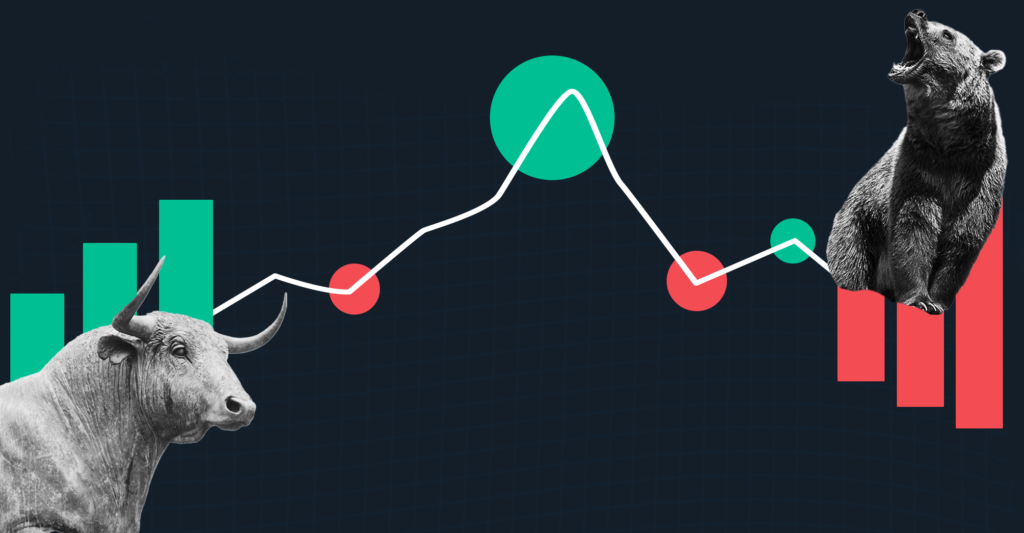Last Updated on Aug 25, 2022 by Aradhana Gotur
The digitization of platforms has revolutionised the way we transact. Whether you need to do daily grocery shopping or invest in a house, the online marketplace provides you with an instant solution. Even if you want to trade in securities, you can go online and begin your trading journey. This article delves into what is online trading, the benefits of online trading, and how to trade online. Before we jump to the nitty-gritty of online trading, let’s understand what is trading in the first place.
Table of Contents
What is trading?
Trading, with respect to the capital market, is buying and selling of securities with a view to make a profit from the difference in price. You can buy different types of securities and then sell them at a later time or date to book profits or to cut your losses.
What is online trading?
Trading when done through the online medium is called online trading. Thus, online trading involves buying and selling of securities on the financial marketplace using web systems or mobile applications on your smartphone, through the internet. The dematerialization of shares facilitated and paved the way for online trading. Stocks are the most commonly traded securities on online platforms. However, you can also trade in bonds, commodities, currencies, and other securities as per your choice.
How to trade online?
For trading online you need a few basic things. These include the following –
A broker
Trading in stocks and commodities can only be done through a broker. You need to connect with a broker and open a brokerage account to be able to buy or sell securities. There are two primary types of brokers you may choose from –
- Discount brokers – these brokers charge a very minimal fee for account opening. The commission they charge on each trade is either minimal or zero. However, the service is limited.
- Full-service brokers – these brokers often charge a fee for account opening and a commission on each trade. However, you can get expert trading advice from these brokers and they help you with online trading.
A trading account linked with your savings account
To start trading, you would need a trading account that is used to pay for the securities that you buy. Similarly, the amount received on selling the security is also credited to the trading account. The trading account, in turn, should be linked with your savings bank account so that money can be debited or credited every time you trade.
A Demat account
A Demat account acts as storage for the securities that you buy. Securities are issued in a dematerialised form and they are stored in the Demat account.
Access to digital payment modes
When you trade online, you would need to make and accept payments through digital modes only. So, have access to digital payment modes which usually include the net banking facility or your savings account linked UPI ID.
A computer or a smartphone with an active internet connection
Lastly, you need an internet-enabled computer or a smartphone with which you can place trades and execute your orders on a real-time basis.
Benefits of online trading
Online trading has a host of benefits which is why it has become popular among traders and investors alike as the preferred mode of trading in India. Some of the benefits of trading online include the following –
Simple and easy to use
First and foremost, online trading is quite simple and easy to use. The user interface of all major brokerage houses is simple, allowing you to buy and sell easily. Even if you are not very tech-savvy, you can trade online without much hassle.
Easy access
Nowadays, internet access has become common and most investors use a smartphone. As such, compared to the conventional mode of trading offline, online trading has become easily accessible. You can simply open the broker’s website or download the mobile app and start trading, at your convenience.
Time and cost-effective
Online trading happens in real-time. As such, it is time-saving. You can place your orders and the orders are executed at the earliest. Moreover, with the online mode, brokers are not required to maintain offline records of all transactions. This reduces their costs thereby reducing their commission and charge structure. This cost-saving is, then, passed on to investors and you can save money on brokerage and transaction costs when you trade online
Control your activities
With online trading, you can log into your trading account and monitor your transactions any time during the trading session from wherever you are.
Easy access to trading records
All your trading history and transaction records are automatically updated in your online account. You can, thus, access these records online, whenever and wherever.
Easy access to trading charts and analysis
Analysts and traders rely on trading charts and analysis to make trading decisions. These charting and analysis tools are in-built and available online and can be accessed with a few clicks.
All-round monitoring
With ease of access and control over your account, you can monitor your portfolio regularly and whenever you want. This allows you to check for possible deviations and take the necessary corrective measures to make your portfolio profitable.
Things to keep in mind
Though online trading is simple and advantageous, here are a few things that you should keep in mind when trading online –
- Understand the capital markets before you begin your journey into online trade. Know the securities that you trade in so that you can pick the right ones for your portfolio.
- Always check the credentials of a broker before you open an account with them. Your broker should be registered with SEBI and have a good reputation to avoid any fraudulent activities.
- Protect your computer or smartphone with the necessary anti-virus software so that the history of your online trade, financial records, and personal details do not fall prey to cyberattacks.
- Keep changing the password of your online trading account regularly to prevent any misuse.
- The financial markets are risky avenues. Start your trading journey after you understand the risks involved and if you have a healthy risk appetite.
The bottom line
Online trading has become the norm in today’s world when the offline mode is slowly becoming obsolete. So, if you are a potential investor and want to invest in the capital markets, understand what is online trading and how it works. Also, learn how to trade online so that you fulfil the basic requirements of online trading. Lastly, be an informed investor and understand how the capital markets work so that you can trade successfully.




